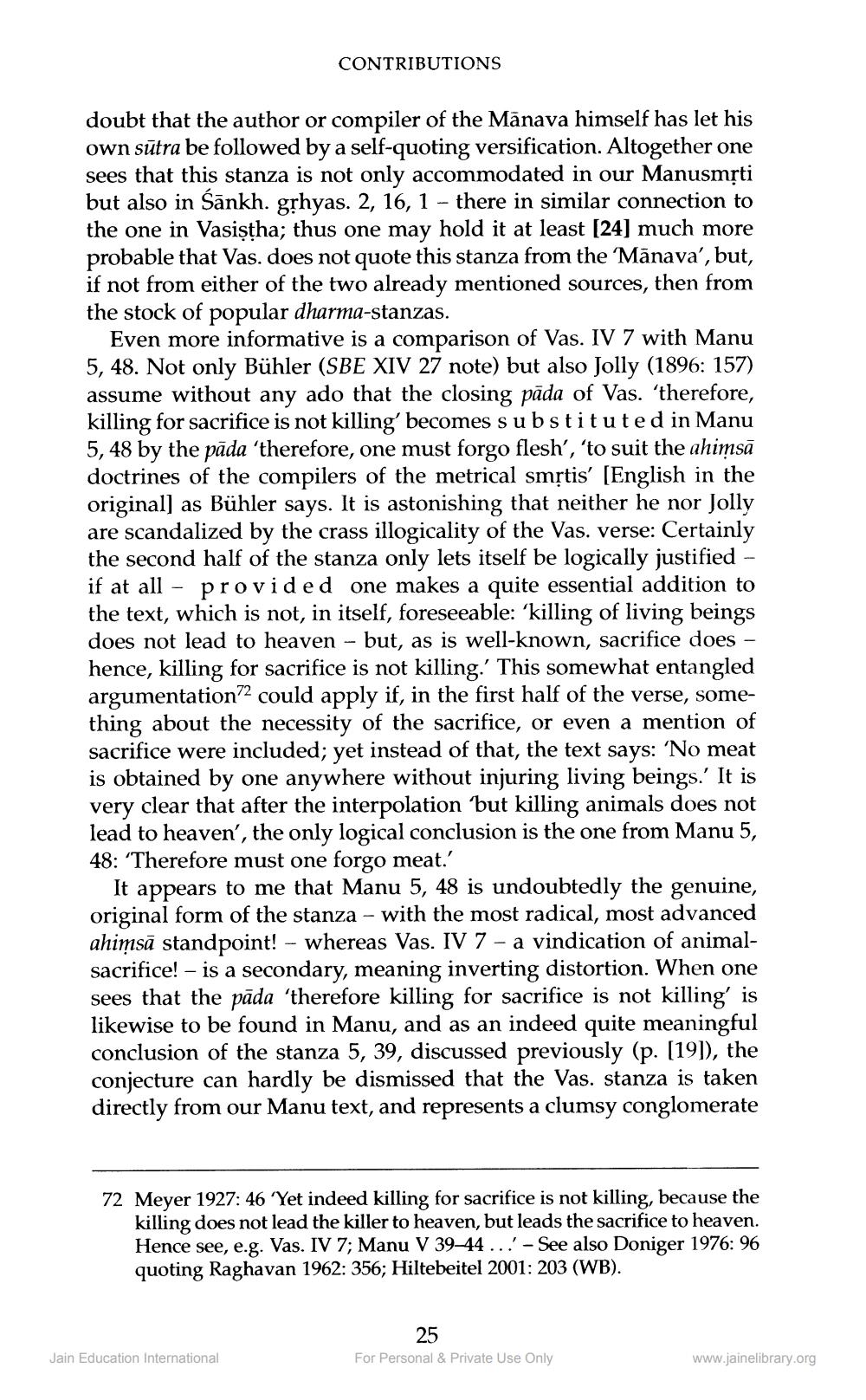________________
doubt that the author or compiler of the Mānava himself has let his own sutra be followed by a self-quoting versification. Altogether one sees that this stanza is not only accommodated in our Manusmrti but also in Sankh. grhyas. 2, 16, 1- there in similar connection to the one in Vasistha; thus one may hold it at least [24] much more probable that Vas. does not quote this stanza from the 'Manava', but, if not from either of the two already mentioned sources, then from the stock of popular dharma-stanzas.
Even more informative is a comparison of Vas. IV 7 with Manu 5, 48. Not only Bühler (SBE XIV 27 note) but also Jolly (1896: 157) assume without any ado that the closing pada of Vas. 'therefore, killing for sacrifice is not killing' becomes substituted in Manu 5, 48 by the pada 'therefore, one must forgo flesh', 'to suit the ahimsa doctrines of the compilers of the metrical smrtis' [English in the original] as Bühler says. It is astonishing that neither he nor Jolly are scandalized by the crass illogicality of the Vas. verse: Certainly the second half of the stanza only lets itself be logically justified if at all provided one makes a quite essential addition to the text, which is not, in itself, foreseeable: 'killing of living beings does not lead to heaven - but, as is well-known, sacrifice does - hence, killing for sacrifice is not killing.' This somewhat entangled argumentation2 could apply if, in the first half of the verse, something about the necessity of the sacrifice, or even a mention of sacrifice were included; yet instead of that, the text says: 'No meat is obtained by one anywhere without injuring living beings.' It is very clear that after the interpolation but killing animals does not lead to heaven', the only logical conclusion is the one from Manu 5, 48: 'Therefore must one forgo meat.'
It appears to me that Manu 5, 48 is undoubtedly the genuine, original form of the stanza - with the most radical, most advanced ahimsa standpoint! - whereas Vas. IV 7 - a vindication of animalsacrifice! - is a secondary, meaning inverting distortion. When one sees that the pada 'therefore killing for sacrifice is not killing' is likewise to be found in Manu, and as an indeed quite meaningful conclusion of the stanza 5, 39, discussed previously (p. [19]), the conjecture can hardly be dismissed that the Vas. stanza is taken directly from our Manu text, and represents a clumsy conglomerate
1
CONTRIBUTIONS
72 Meyer 1927: 46 'Yet indeed killing for sacrifice is not killing, because the killing does not lead the killer to heaven, but leads the sacrifice to heaven. Hence see, e.g. Vas. IV 7; Manu V 39-44... See also Doniger 1976: 96 quoting Raghavan 1962: 356; Hiltebeitel 2001: 203 (WB).
Jain Education International
25
For Personal & Private Use Only
www.jainelibrary.org




